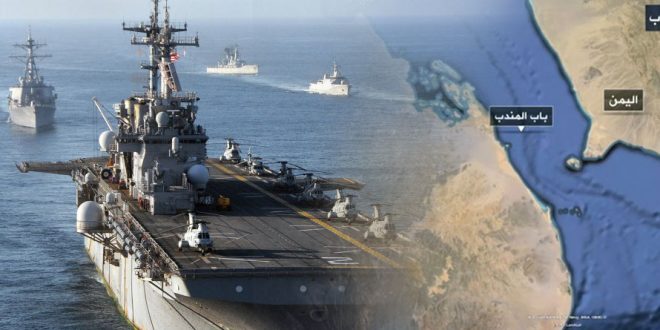Washington Post: This is what the UAE and Saudi Arabia want from Hodeida
Eight million people are on the verge of famine and face the worst outbreak of the cholera epidemic in history, the Washington Post reported on the Yemeni situation.
At a time when the most important part in the country became the target of a new attack during a civil war raging three years ago, where Yemeni forces with the support of the UAE and Saudi Arabia has been attempting to occupy Hodeida, a city of 700 thousand people. Hodeida is where 70% of aid shipments are entered in order to maintain millions of civilians alive.
The paper called on America, which supplies the Saudi-UAE alliance with weapons and intelligence, to use its influence and stop this reckless military operation. Adding that the Saudis and their allies had intervened in Yemen three years ago with the aim of overthrowing the Houthis who occupied the capital Sana’a.
The conflict soon turned into a proxy war with Iran, which is accused of supplying Houthis with rockets, some of which they fired at Saudi cities. The campaign has become a swamp for the Saudis and their allies, who have killed thousands in their air raids but have failed to restore most of the country.
At the same time, the health care system and food supplies have collapsed, making millions of Yemenis dependent on international aid.
The Saudis and some of their defenders in Washington argue that the control of the port of Hodeida will improve deliveries of aid and stop smuggling Iranian rockets, however, aid groups see it differently. They say the attack will face strong resistance and even if it succeeds, it will take weeks and months.
Any continued disruption of the arrival of ships to Hodeidah could plunge the country into famine and make it nearly impossible to combat cholera, which has affected more than a million people so far. Military escalation also involves self-folly because it comes at a time when the prospect of a peaceful settlement is improving. UN envoy Martin Griffiths is supposed to present a plan for peace negotiations next month.
The officials were encouraged by the willingness of the Houthi leaders to negotiate, where they made plans to stop fighting for each province, including stopping the launching of missiles. However, the problem lies with Saudis and Emiratis who seem more interested in controlling Yemeni ports than ending the war.
Here comes the American role. Both the Obama administration and Trump provided limited support to the Saudi-led coalition while at the same time trying to curb reckless bombardments and exacerbate the humanitarian crisis.
When the Saudis imposed a suffocating siege on Hodeida last year, President Trump issued a statement calling on Saudi Arabia to allow direct entry of food, fuel, water and medicine to the Yemeni people who desperately needed it. The blockade was immediately suspended.
Now, as an escalating campaign against Iran, the administration promises more support for Saudi Arabia and the United Arab Emirates, despite strong opposition from Congress, seeking to sell $ 2 billion worth of ammunition to the two allies. Instead, it must insist that Saudi Arabia take the peace negotiations seriously and that the Emiratis stop their march towards Hodeida.

